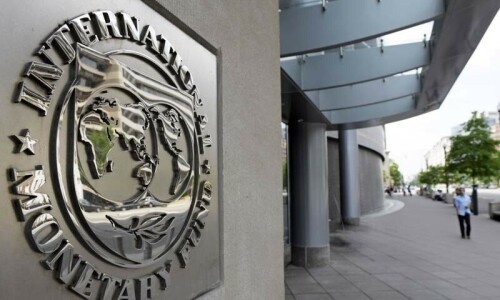• Power division directs distribution companies, K-Electric to sign service-level agreements
• New accords set reliability standards for industrial power consumers
• Propose penalties for supply disruptions, grid fluctuations
ISLAMABAD: In a bid to attract industrial captive power plants (CPPs) to the national grid and absorb surplus electricity capacity, the power division on Thursday directed all public and private electricity distribution companies to sign service-level agreements (SLAs) for improved power supply.
In separate letters, the power division also shared with all the exWapda distribution companies (Discos) and K-Electric a template SLA that also promises penalties payable to CPP consumers for grid fluctuations and supply disruptions beyond committed standards.
“The objective of these service level agreements is to enhance reliance on the transmission system of electricity distribution companies,” the power division said, adding that these agreements would include provisions ensuring a stable, reliable and high-quality electricity supply to these industries, catering to their specific needs.
“In case of non-compliance or violations by distribution companies, penalties will be imposed,” said the power division.
Under the draft agreement, the power companies would be required to maintain 99pc reliability of power supply and compensate the CPP consumer at the rate of Rs10,000 for each hour of breach on the voltage and frequency tolerance.
The power companies would also be required to hold regular meetings with the CPP consumers for planned maintenance or power disruption in advance, but in case of a lower-than committed reliability rate (excluding force majeure), the power company shall compensate the consumer with Rs50,000 as a penalty.
Also, for failure to notify planned outages within the stipulated timeframe, the power company shall provide a one-time discount of Rs50,000.
The penalty would be adjustable on an annual basis with mutual consent.
A power sector analyst said the power division’s instructions to the power companies were outside the legal and regulatory arrangement currently in place as no agreement could be imposed on companies or be signed without prior approval of the regulator in a prescribed format.
The regulator itself is bound to go through the hearing process for such a legal instrument.
The division said these agreements would be initially valid for two years.
These would cover mechanisms for addressing technical faults in electricity supply and their resolution.
A structured mechanism for resolving disputes arising under these agreements will also be provided.
The power division directed all electricity distribution companies to fulfil the legal requirements for these service-level agreements immediately.
Furthermore, the directive reiterates that the SLA will not override or replace the conditions and parameters of the Grid Code, Distribution Code, Consumer Service Manual, or any other prevailing law.
Power companies would be required to maintain around 50Hz frequency and maintain a minimum reliability rate of 99pc in case of connection at 0.4 kV, 99.5pc in case of connection at 11 kV, and 99.8pc in case connection at 132 kV.
This will ensure that the annual duration of unplanned long-duration power supply interruptions does not exceed 88 hours, 44 hours and 26 hours for connections at 0.4 kV, 11 kV and 132 kV, respectively, except for external reasons like natural calamities.
The power companies would notify the consumer of planned outages at least 48 hours in advance and ensure planned outages do not exceed eight hours per instance.
They would also establish a one-window complaint redressal desk dedicated to the CPPs, in addition to normal platforms.
Power companies would be required to provide real-time monitoring and support to address unexpected outages within two hours for minor faults and within six hours for major faults and install and maintain equipment for voltage regulation or similar equipment on the system in the grid to ensure stable voltage supply during peak demand periods.
CPP consumers would be notified at least 30 minutes in advance in case of emergency supply cutoffs.
The power companies would commit to investing in modernising and upgrading the distribution infrastructure to improve system efficiency and reliability, which has been one of the key reasons CPPs have resisted the national grid besides cheaper gas.
Published in Dawn, January 31st, 2025












































